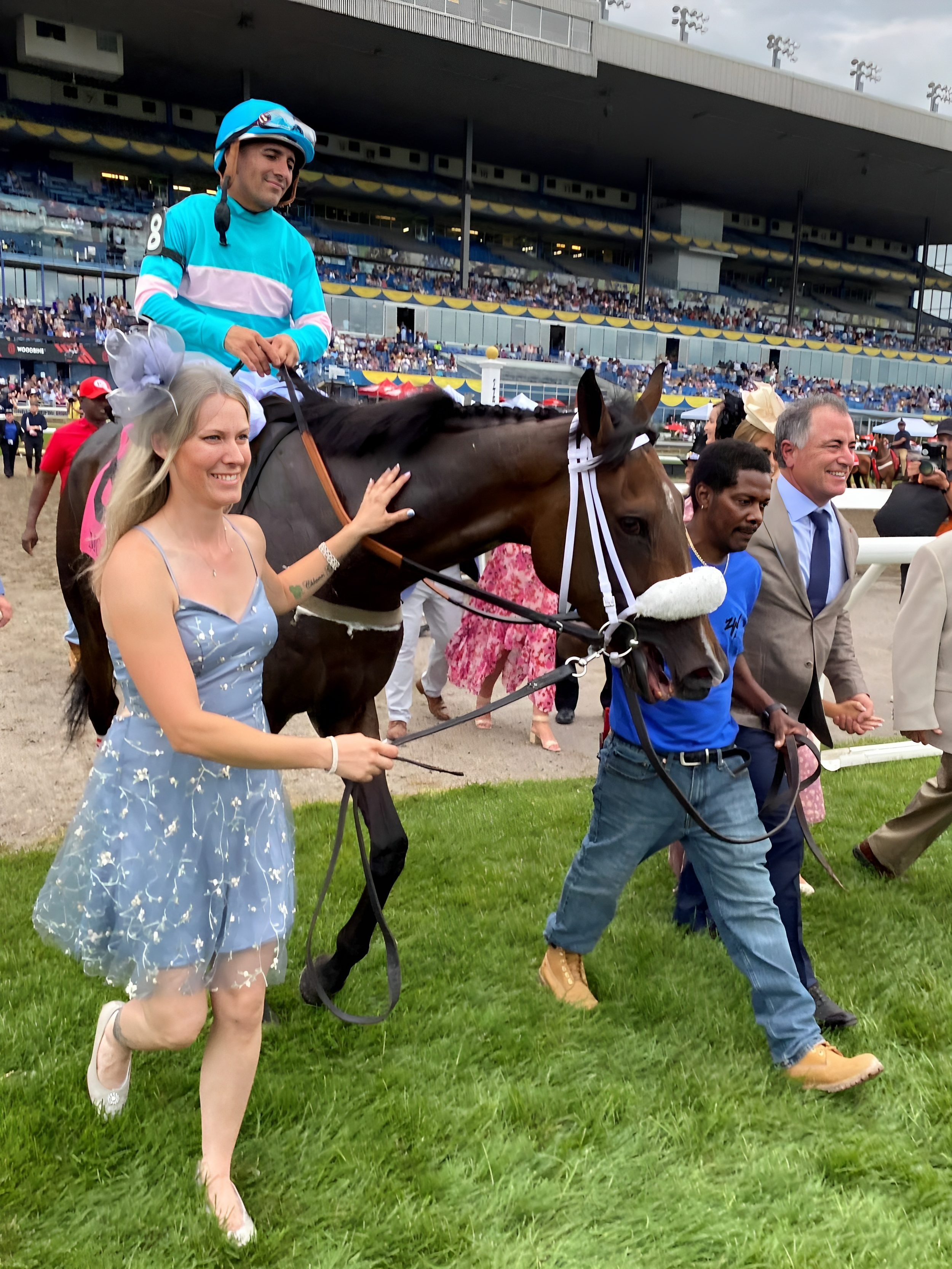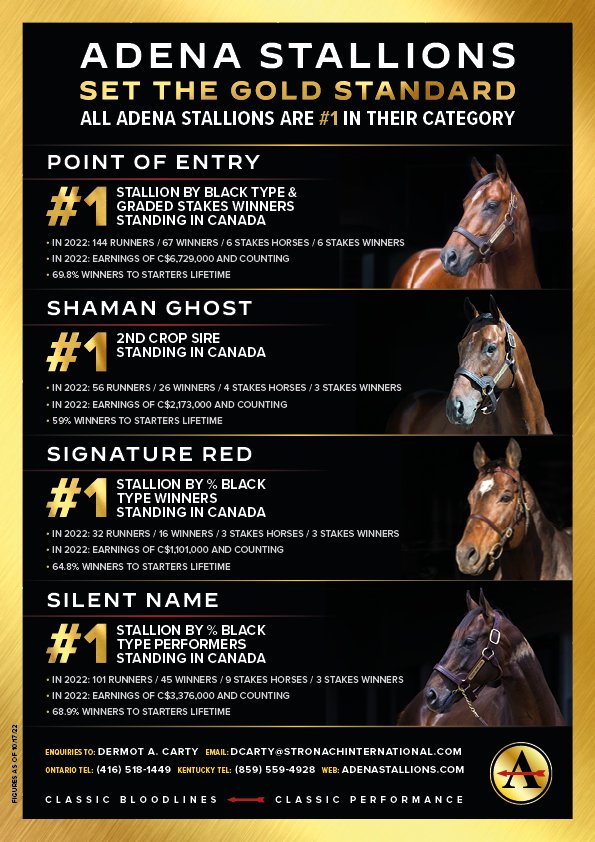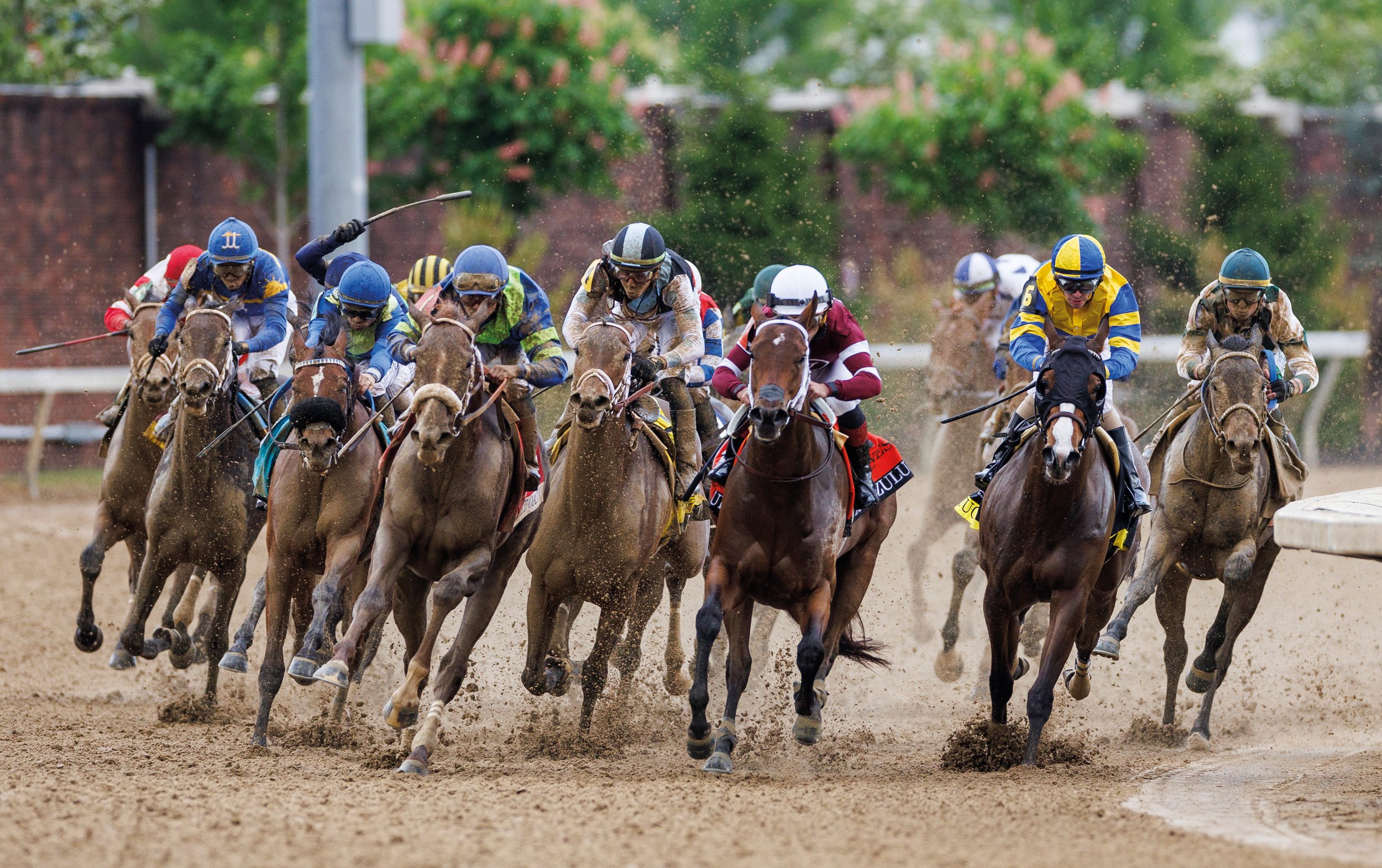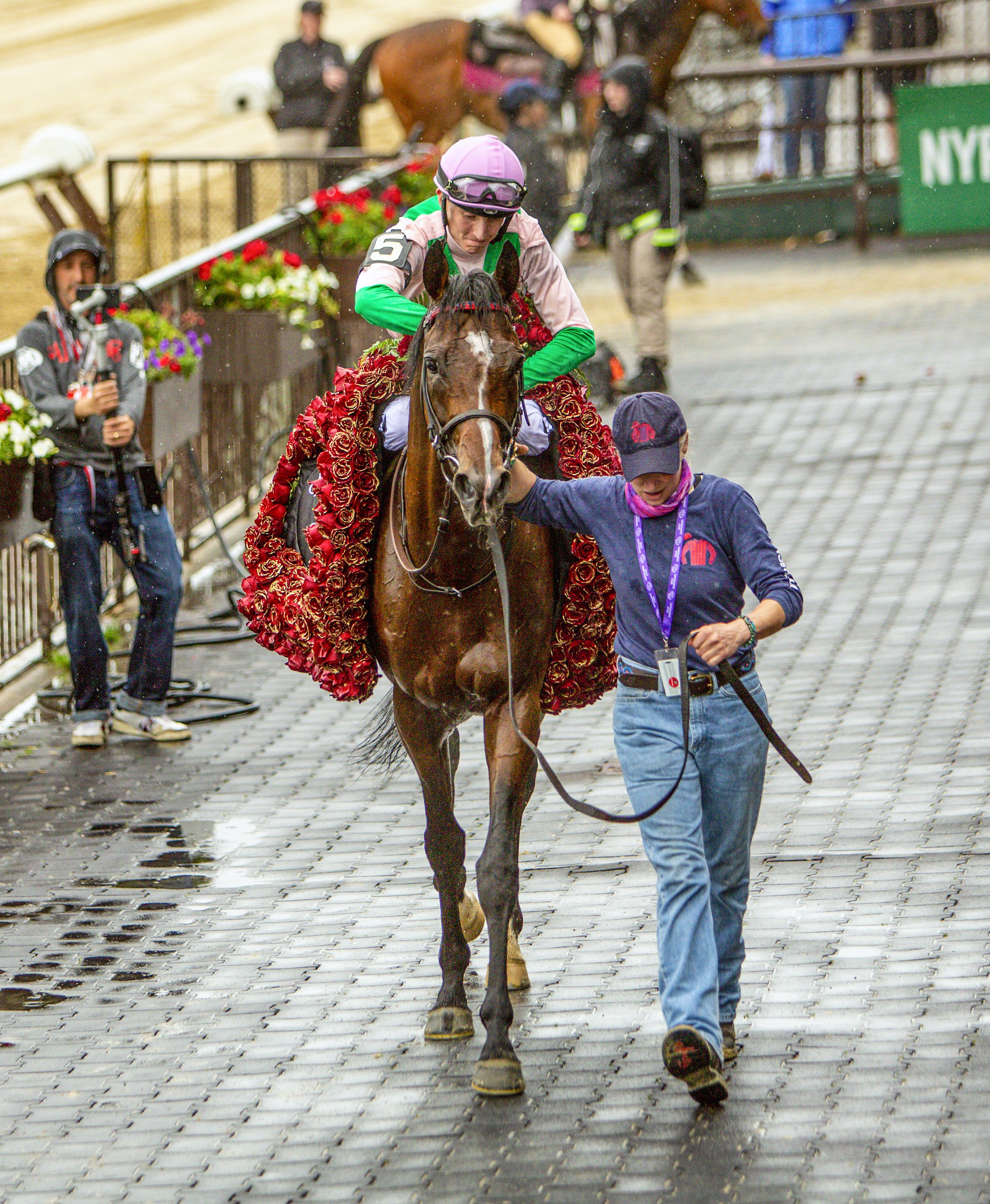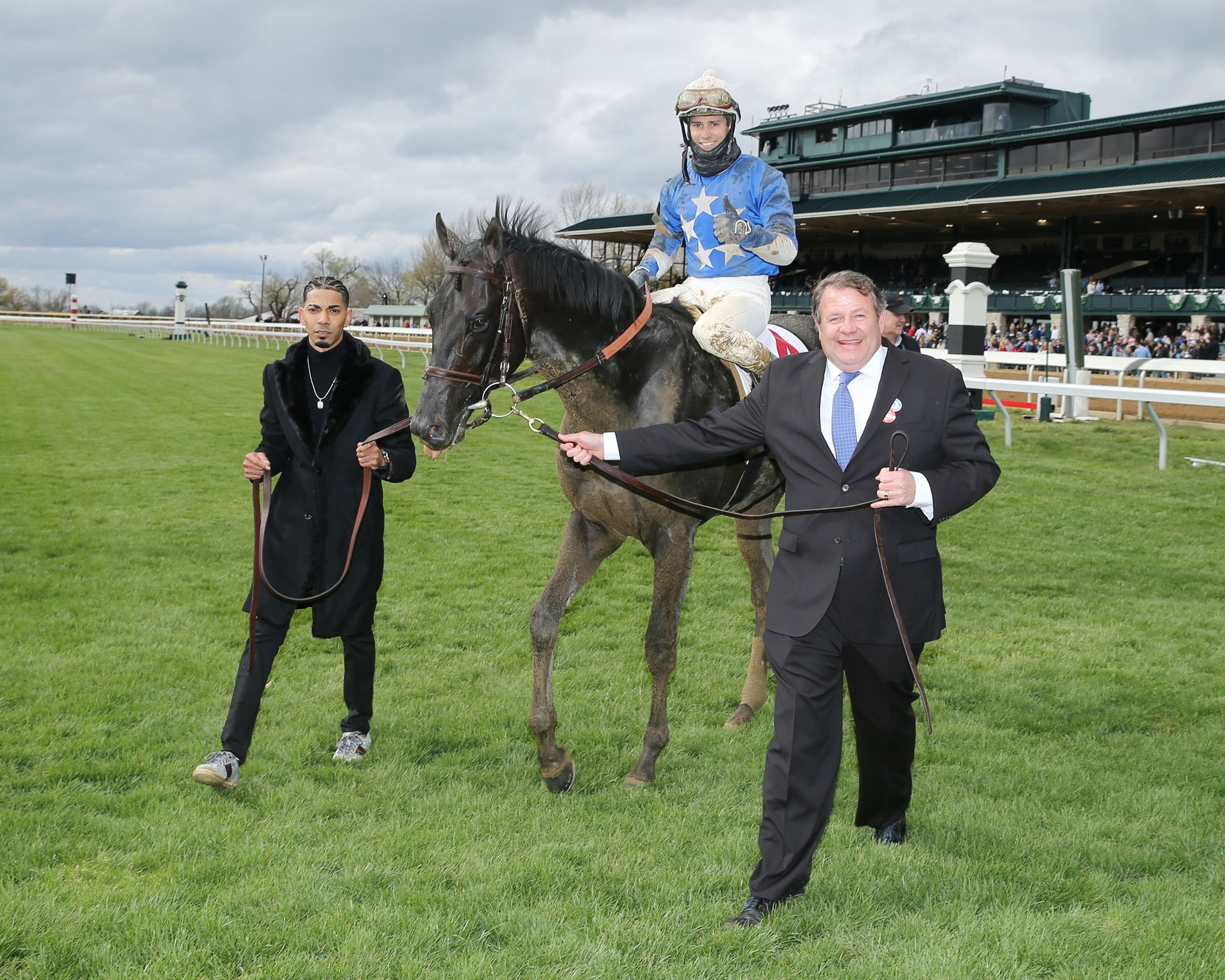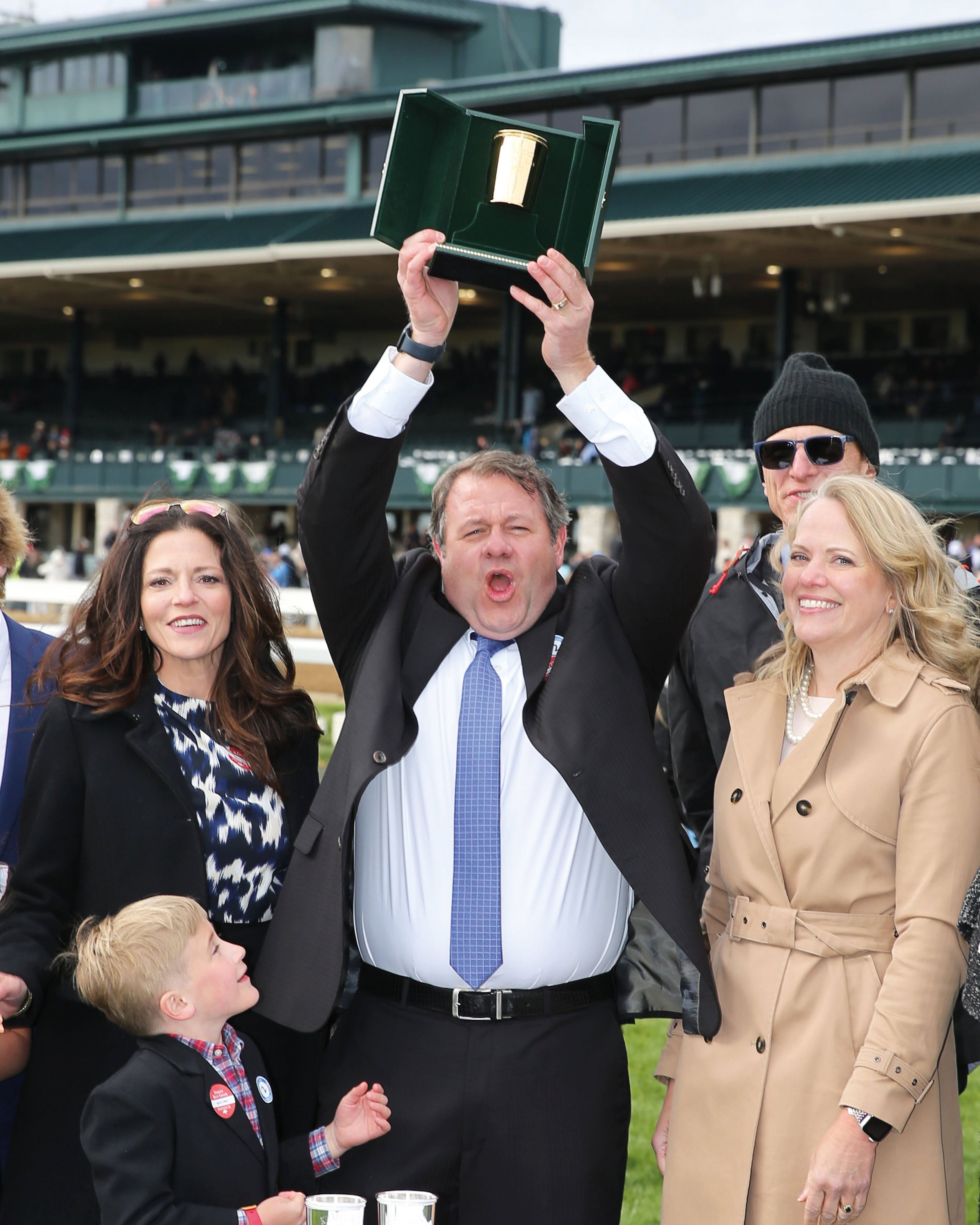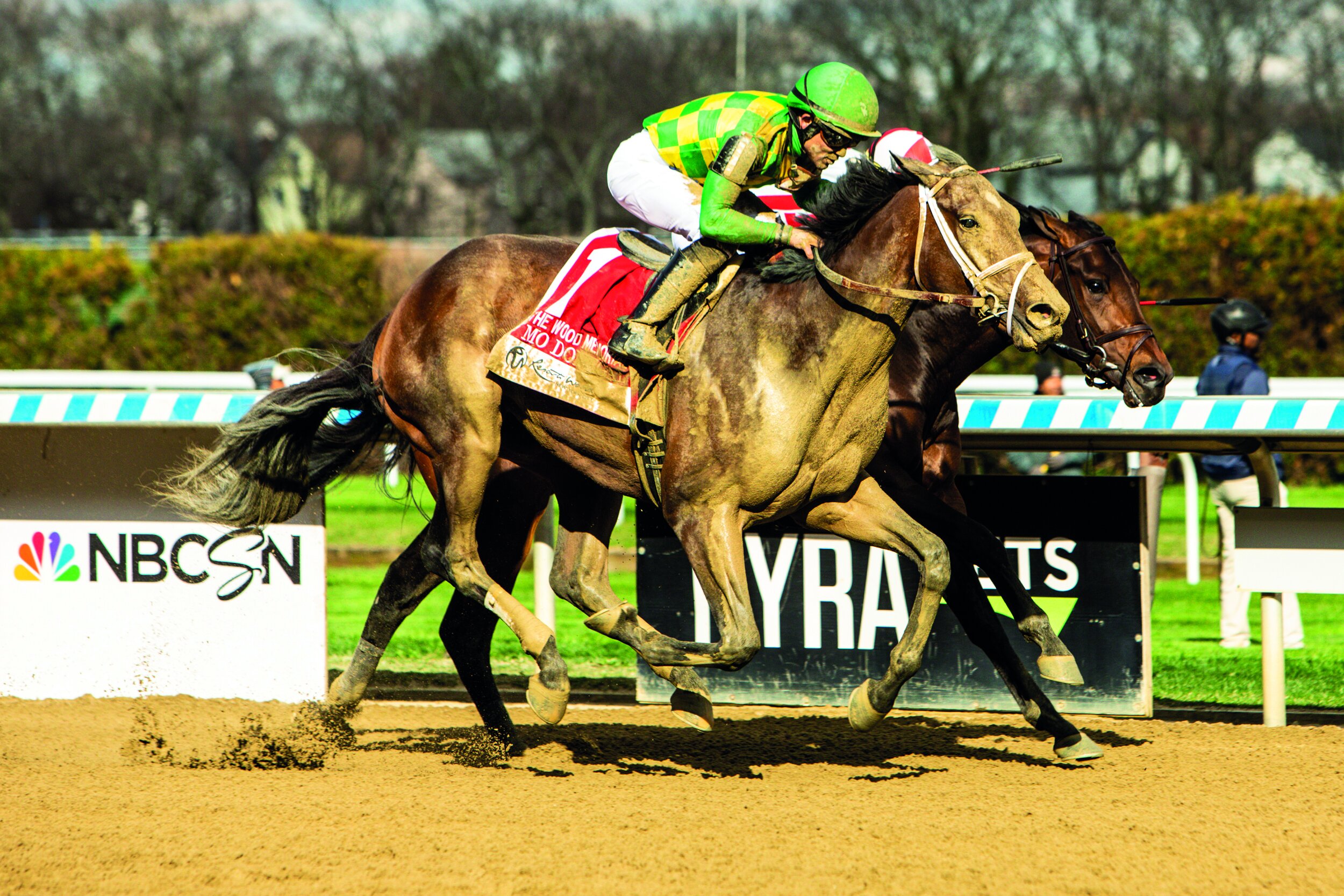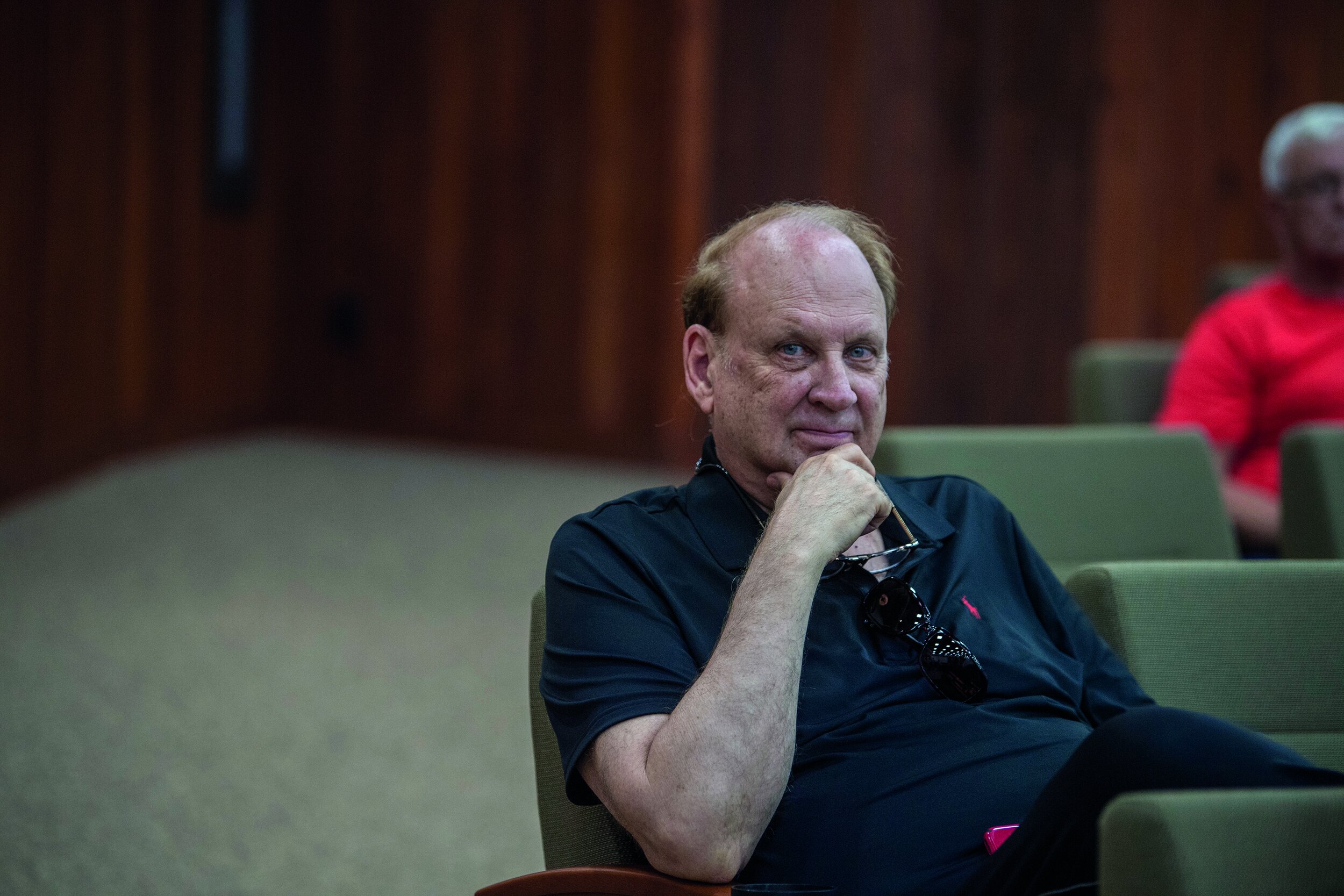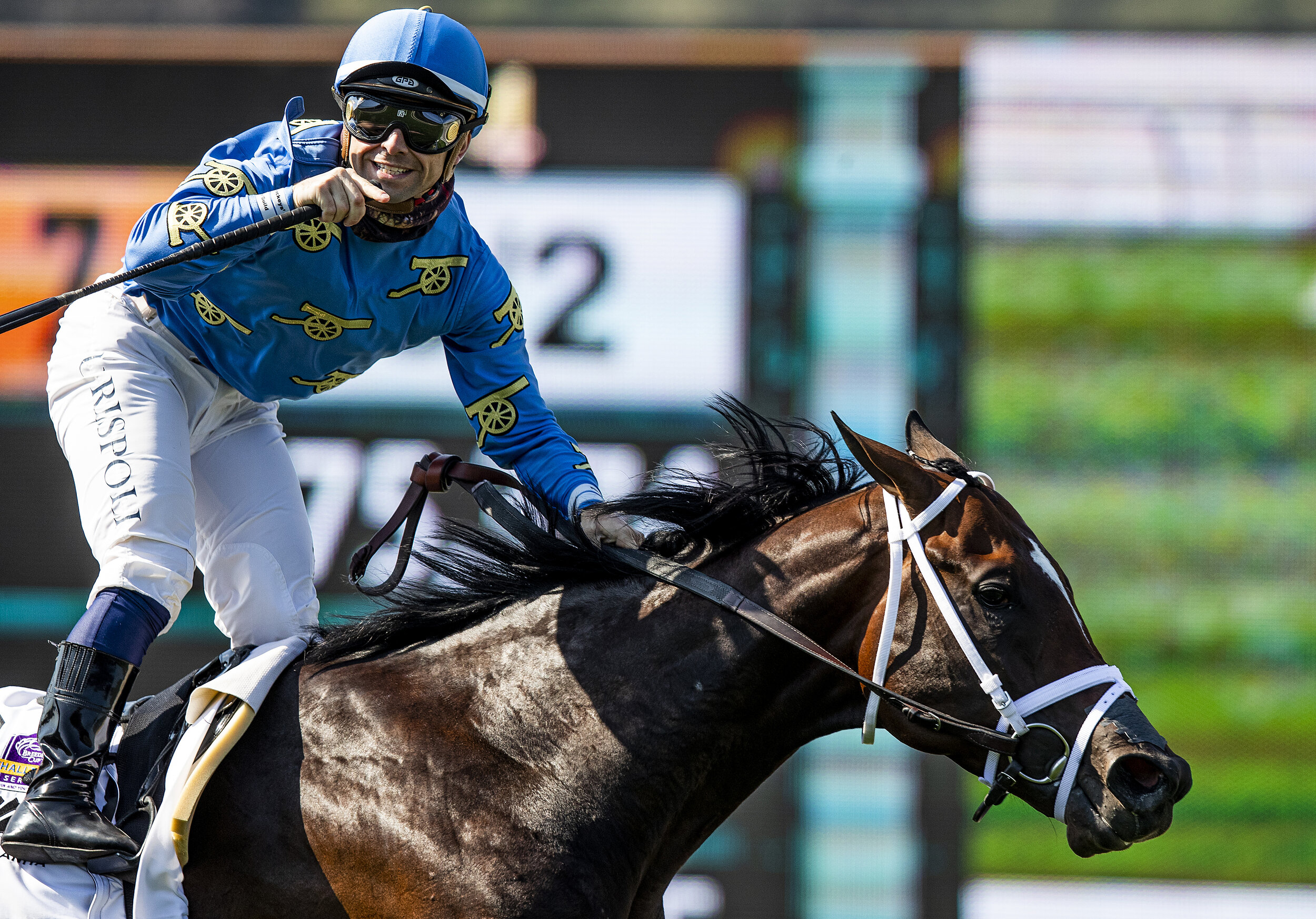Donato Lanni - X-Men Racing
/Article by Bill Heller
Thoroughbred bloodstock agent Donato Lanni cherished trips to the racetrack with his father, Giuseppe, who grew up in Italy and settled in Montreal, making a career as a construction contractor. He did well enough to pursue his passion. “My dad had a love and a desire for horses and horse racing,” Donato said. “He had some claiming horses.”
They were harness horses and Donato and his father shared evenings at Blue Bonnets Racetrack. “I grew up around it,” Donato said. ”As a kid, there’s something inside you that gets alerted. You catch the bug. I don’t think that’s a myth. I was eight or nine.
“Summertime, I got more involved. I spent all my time at Blue Bonnets going to the barn. I became a groom when I was 13 or 14. There I got to meet some really cool guys—some of the most legendary guys in harness racing: Andre LaChance, Sylvan Filion and Duncan MacTavish. Andre never talked and was not very pleasant to be around, but he was a hell of a horseman. He took a liking to me for some reason. I drove in qualifier (non-betting) races.” Donato was 16 when he bought his first horse.
Though Donato graduated from Concordia University in Montreal, he realized that he wanted to head south—far south. Taking advantage of a summer program at Concordia, Donato got a temporary visa to work in the United States, fixating on Kentucky.
“I didn’t see a future in Canada,” he said. “I asked, `How am I going to make a living with horses?’ I thought I had to go to Kentucky and see what it was like. I left Canada, knowing I was never going back.”
But he had no connections in America. “You take a chance and go to work,” Donato said.
And when you can’t find work? Running out of money, Donato bought a tent and camped out at the Kentucky Horse Park.
He got a huge break when he met John Cashman of Castleton Farm, one of the premier harness farms in North America. “I got a job with John,” Donato said. “He was very nice to me. I became the yearling manager in 1996. I was 25. I kept working. Grind, grind. Eventually doors open and you meet people.”
He counts himself lucky for meeting and then working for John “Big Johnny” Jones, the founder of Walmac International Farm in Lexington, where such super stallions as Nureyev and Alleged stood. Jones was also the founding partner of Four Star Sales. Initially, Donato landed a job with Walmac selling stallion services.
“If there was one person most responsible for any success that I had, it was Johnny Jones,” Donato told Murray Brown in his October 2021 story in Harness Racing Update. “Johnny was a noted bloodstock agent who ran Walmac International. It was from him that I learned my craft. He sold and bought horses. Eventually, so did I. While I was at Walmac, Johnny supported me on my first route towards becoming an American citizen.”
While with Walmac, Donato got to know Thoroughbred owner and movie theater magnate George Krikorian. He told Donato to let him know if one yearling caught his eye at any of the sales. One did—Starrer. She sold for $35,000 and won multiple Gr. 1 stakes on the way to becoming Donato’s first millionaire. In an article in Blood-Horse magazine, Krikorian said of Donato, “I don’t know anyone who had a better eye for horses than he does.”
Eventually, Donato worked for John Sikura’s Hill ‘n’ Dale Farm as director of Bloodstock Services, and became friends with Hall of Fame trainer Bob Baffert. “I met Bob 20 years ago at a sales,” Donato said. “He took me around and showed me what to look for. We’re still pretty close. I learned my craft through Bob Baffert. He’s a great horseman. He’s the best.”
Donato has paid Baffert back by selecting two Horses of the Year: Arrogate (2016) and Authentic (2020).
In 2006, Donato reconnected with Canadian horsemen, specifically trainer Kevin Attard. Attard trained Leonnatus Anteas, a yearling colt Donato picked out for Nob Hill Farm. The following year, Leonnatus Anteas won all three of his starts and was named Canadian Champion Two-Year-Old Colt. “That was the start of our relationship together,” Kevin said. “He sent me a couple horses over the years. For me to be associated with him has been a boost to my career. He respects me as a trainer.”
A few years back, Donato decided to start a new team. He convinced several Canadian horse owners and hockey fans to form X-Men Racing and then partnered with SF Racing and Madaket Stables. Lanni nicknamed the partnership “The Avengers. We put a fund together and bought a dozen horses,” Donato told Murray Brown in his story. “They’re all guys that are in the horse business—some of them with Standardbreds. But what they all have in common, besides being friends with me, is that they’re all lucky.”
One of the original dozen X-Men Racing horses was Moira. All the filly did in August was defeat colts while taking the $1 million Gr. 1 Queen’s Plate by seven lengths in track-record time. Less than a month later, their two-year-old filly Last Call won the Gr. 1 Natalma.
Through all the ups and downs, all the twists and turns of his colorful career, he never lost that feeling he first experienced when he went to the track with his father. “They’re majestic animals,” Donato said. “They’re beautiful to look at. You go work with them; it’s very challenging and it’s fun. We got started because we love the horse.”

